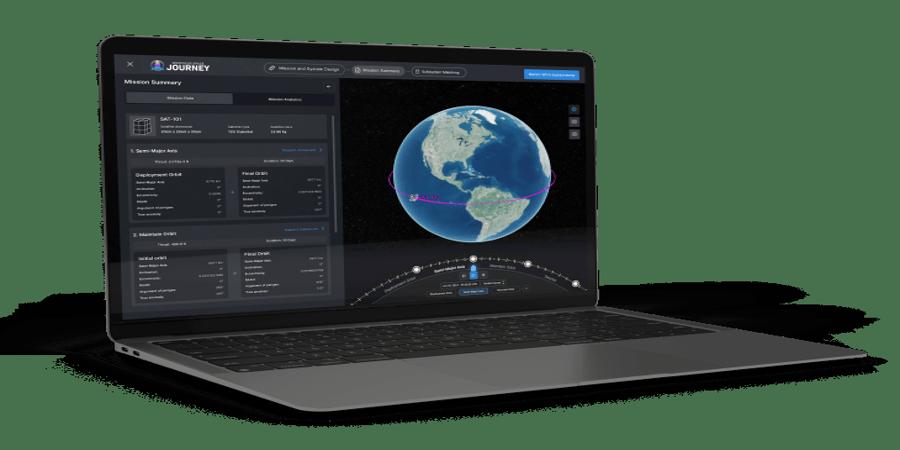In-space propulsion developer Morpheus Space unveiled its first software product today, a mission simulation and design platform called Journey.
The product has been under development for almost two years, Morpheus’ product manager Jim Gianakopoulos said in a recent interview (and a recent product walk-through). It was borne out of the typical thruster sales process: customers coming to Morpheus and asking whether the startup’s lineup of electric propulsion systems could meet their mission requirements. But that process is highly technical, disaggregated and manual.
“We realized that that was an inhibiting factor,” Gianakopoulos said. “It can be empowering for our users to just give them the locus of control to actually simulate their entire mission themselves, analyze it and refine it and see what propulsion system meets [their] needs.”
Journey aggregates all the data that’s typically spread out amongst Excel sheets, Python and other systems and rapidly spits out a mission and system design. In the software, customers can input custom system measurements, maneuvers, launch date, and other requirements. The software is designed to be friendly even for nontechnical users, with templates for common attributes like satellite size.
Notably, the Journey platform does not just match customers with Morpheus’ own propulsion systems. Depending on the mission requirements, it may also recommend third-party chemical propulsion systems, as well as different subsystems like attitude determination and control systems and communications.
The first product on the platform is called Preliminary Mission Design (PMD) and the company is also planning on rolling out a higher fidelity Advanced Mission Design (AMD). The platform is designed to take a customer from the ideation of the mission all the way through even to end-of-life deorbiting operations.
Morpheus has five to six early customers using the PMD product to inform their early mission and system design; AMD will launch in the next two weeks in a closed beta. Morpheus, which has offices in Germany and El Segundo, California, was founded in 2018. Last September, the startup closed a $28 million Series A round led by Alpine Space Ventures.
Source @TechCrunch



